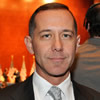Sports
Local athletes find niche in triathlon community
Sean Maloney, Jorge Alvarez shine despite not feeling particularly athletic
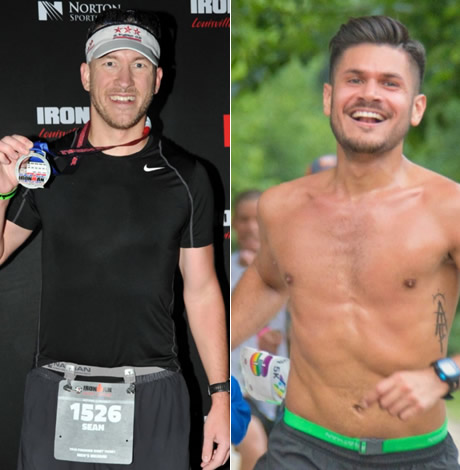
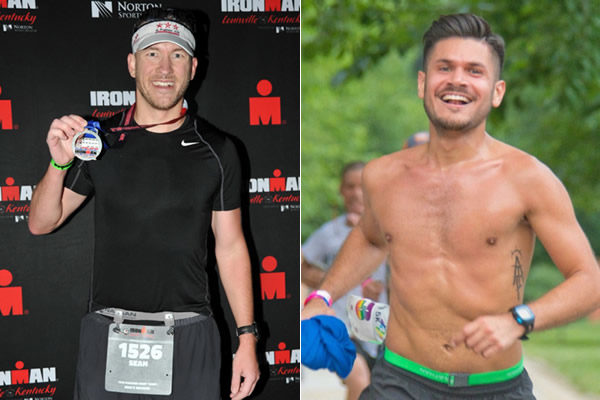
TriOut Multisport. is the LGBT community group under the DC Tri Club umbrella. This week in the Blade’s All Star series, we spotlight the path of two LGBT athletes who have found their niche in the triathlon community.
Like many triathletes, Sean Maloney has a list of goals. This year, he’ll compete in his third full Ironman triathlon and hopes to one day be selected for the Kona Ironman World Championship through its Ironman Legacy Program.
He also wants to run a full marathon on all seven continents. Even though he’s marking off sports achievements that many people only dream about, he still says he is not athletic.
“I don’t feel any more athletic now than when I started doing triathlons,” Maloney says. “When I think of athleticism, I think of talent and coordination. I am just a normal guy.”
As a kid in Corning, N.Y., Maloney’s father pushed him to try sports, but none of them stayed with him. He spent two years on the tennis team in high school but says he was more interested in a less rigid sense of masculinity and just being himself.
While attending Binghamton University, he began running at a nearby nature reserve and continued through his graduate work at Syracuse University. After working as a clinical social worker at an LGBT community center in rural Pennsylvania, Maloney moved to D.C. in 2010.
He was only running up to three miles at the time when a spin instructor asked him to run the Annapolis Ten Mile Run. It was his launching pad race and he goes back every year to participate and mark the spot where he got started.
Maloney’s first triathlon was the Carolina Beach Double Sprint in 2014 and there were many lessons along the way.
“I signed up at the YMCA for swim training and couldn’t make it past 12 yards at my first session. When I saw the five-foot swells at the triathlon, I had a panic attack. I didn’t even know how to get past the breakers,” Maloney says. “After I completed the race, the feeling of accomplishment was totally novel to me. It was different and addicting. I did two more triathlons that year including the Cleveland Gay Games.”
Maloney, who works as director of development at Women for Women International, returned to the Gay Games in Paris last year to run the full marathon. Coming up he will be doing the Geneva Musselman sprint triathlon with his father and twin sister, and then completing the half Ironman the next day on his own.
“The triathlon community has given me so much. There are built-in training partners that help you cut through the noise,” Maloney says. “I have found my best friend, a sense of community and a sense of self.”
Jorge Alvarez discovered something in the triathlon community that he didn’t know was inside of him: a competitive sports spirit. Growing up in Venezuela and the United Kingdom, there was a small amount of swimming and tennis, but most of his focus was on playing cello.
His music kept him busy, but he put aside time for running and biking while attending Shepherd University. After moving to D.C. in 2013, he began dating a runner, ran a few 5Ks and then went right for a longer distance taking on the Marine Corps Marathon.
“Running long distances was starting to hurt my knees and I ended up splitting from my boyfriend,” Alvarez says. “I was in a dark place and I needed something positive to keep me busy.”
Alvarez started training on his own for a triathlon and completed his first sprint at the Nation’s Triathlon in 2017. He was hooked and joined TriOut Multisport for race and nutrition advice before moving forward to compete in more triathlons.
“My competitive drive kicked in after that first race when I realized that sports were helping me stay out of that dark place,” Alvarez says. “I love all of it — the discipline, the research, the dedication. It fulfills me and makes me happy.”
Alvarez has many things keeping him busy outside of triathlon training. Along with working as an accountant at a nonprofit, he plays cello with NIH Philharmonia, teaches music to youth and has played in Stonewall Kickball.
And like all competitive athletes, he has sports goals.
“I am aiming to complete a half Ironman this year and would like to try and make the elite team with DC Tri,” he says. “I am proud to be dedicated to my racing. If you work really hard, you can get to a better place.”
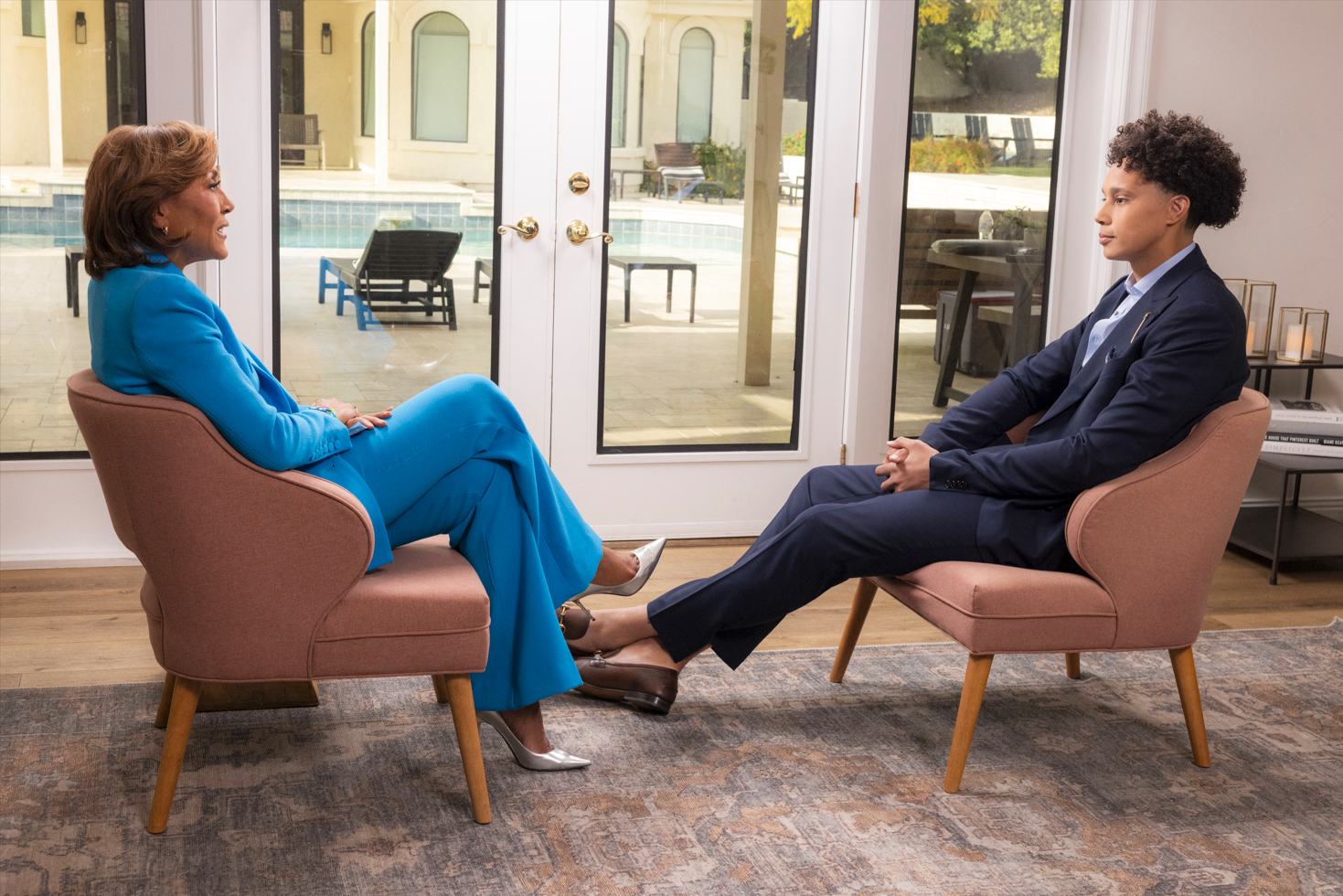
CONTENT WARNING: The following story discusses suicide ideation.
Her first few weeks behind bars in a Russian prison took a terrible toll on Brittney Griner, the lesbian WNBA star who is breaking her silence on the 10 months she was held on drug-related charges.
“I wanted to take my life more than once in the first weeks,” Griner told ABC’s Robin Roberts in a primetime interview Wednesday. “I felt like leaving here so badly.”
The two-time Olympic gold medalist and nine-time WNBA All-Star, who plays for the Phoenix Mercury, said she ultimately decided against suicide, partly because she feared Russian authorities would not release her body to her wife, Cherelle Griner.
Griner, 33, was arrested on Feb. 17, 2022, at Sheremetyevo International Airport in Khimki, a suburb of Moscow. Authorities said they found vape cartridges in her luggage containing cannabis oil, which is illegal in the country.
Griner told Roberts that was the result of a “mental lapse” on her part — packing the cannabis oil cartridges in her luggage, Griner said that she had overslept on the morning she was leaving for Russia to play during the WNBA’s off-season, which is how many of the league’s vastly underpaid players earn a living, compared to NBA players.
So, she packed while she was “in panic mode,” Griner said.
“My packing at that moment was just throwing all my stuff in there and zipping it up and saying, ‘OK, I’m ready,’” she told Roberts.
After landing in Russia, Griner realized that she had those two cannabis oil cartridges in her luggage as Russian security officers inspected her bag at the airport. She recalled the moment as a sinking feeling.
“I’m just like, ‘Oh, my God.’ Like, ‘How did I — how did I make this mistake?’” Griner said. “I could just visualize everything I worked so hard for just crumbling and going away.”
Russian authorities immediately arrested Griner, but her trial would not take place for five months. She described the horrible conditions of her imprisonment during that delay, saying that she didn’t always have toilet paper and that the toothpaste they gave her had expired about 15 years ago.
“That toothpaste was expired,” she said. “We used to put it on the black mold to kill the mold on the walls.”
“The mattress had a huge blood stain on it, and they give you these thin two sheets,” she added. “So you’re basically laying on bars.”
On July 7, 2022, Griner pleaded guilty at her trial to drug charges, admitting that she had the vape cartridges containing cannabis oil but stating she put them in her luggage unintentionally. She testified that she had packed the cartridges by accident, and had “no intention” to break Russian law.
Roberts pressed Griner on this point: “You know there are those who say, ‘Come on. How did you not know that you had cartridges in your luggage?’”
“It’s just so easy to have a mental lapse,” Griner replied. “Granted, my mental lapse was on a more grand scale. But it doesn’t take away from how that can happen,” she explained.
Griner was sentenced to nine years in prison on Aug. 4, 2022, and in October 2022, a judge denied the appeal filed by Griner’s attorneys.
The sentence landed Griner in a penal colony in the Russian region of Mordovia.
“It’s a work camp. You go there to work,” said Griner. “There’s no rest.” Her job was cutting fabric for Russian military uniforms.
“What were the conditions like there?” Roberts asked.
“Really cold,” Griner said. So cold that her health was impacted and she decided to chop off her long dreadlocks.
“What was that like losing that part of you, too?” Roberts asked Griner.
“Honestly, it just had to happen. We had spiders above my bed — making nests,” she said. “My dreads started to freeze,” she added. “They would just stay wet and cold and I was getting sick. You’ve gotta do what you’ve gotta do to survive.”
Her arrest came around the same time as Russia’s invasion of Ukraine, further increasing tensions between Russia and the U.S. But as the Los Angeles Blade reported on Dec, 8, 2022, Russia agreed to release Griner in exchange for Russian arms dealer Viktor Bout.
However, before winning her freedom, Griner revealed authorities forced her to write a letter to Russian President Vladimir Putin.
“They made me write this letter. It was in Russian,” she said. “I had to ask for forgiveness and thanks from their so-called great leader. I didn’t want to do it, but at the same time I wanted to come home.”
Griner said her heart sank upon boarding the plane to freedom and finding that Paul Whelan, another American the White House said was “wrongfully detained,” wasn’t leaving Russia with her.
“I walked on and didn’t see him, maybe he’s next. Maybe they will bring him next,” she said. “They closed the door, and I was like, are you serious? You’re not going to let this man come home now.”
Griner recounts on the experience in “Coming Home,” a memoir set to be released on May 7.
988 is the National Suicide and Crisis Lifeline and is available 24/7 via phone, text or chat to everyone of all ages, orientations and identities. If you are a transgender, nonbinary, or gender-nonconforming person considering suicide, Trans Lifeline can be reached at 877-565-8860. LGBTQ+ youth (ages 24 and younger) can reach the Trevor Project Lifeline at 1-866-488-7386. You can still also contact the National Suicide Prevention Lifeline at 1-800-273-8255 24 hours a day, and it’s available to people of all ages and identities.

Additional resources:
If you are in a life-threatening situation, please dial 911.
If you are in crisis, please dial 988 or contact Rainbow Youth Project directly at +1 (317) 643-4888
Sports
Bisexual former umpire sues Major League Baseball for sexual harassment
Brandon Cooper claims female colleague sexually harassed him
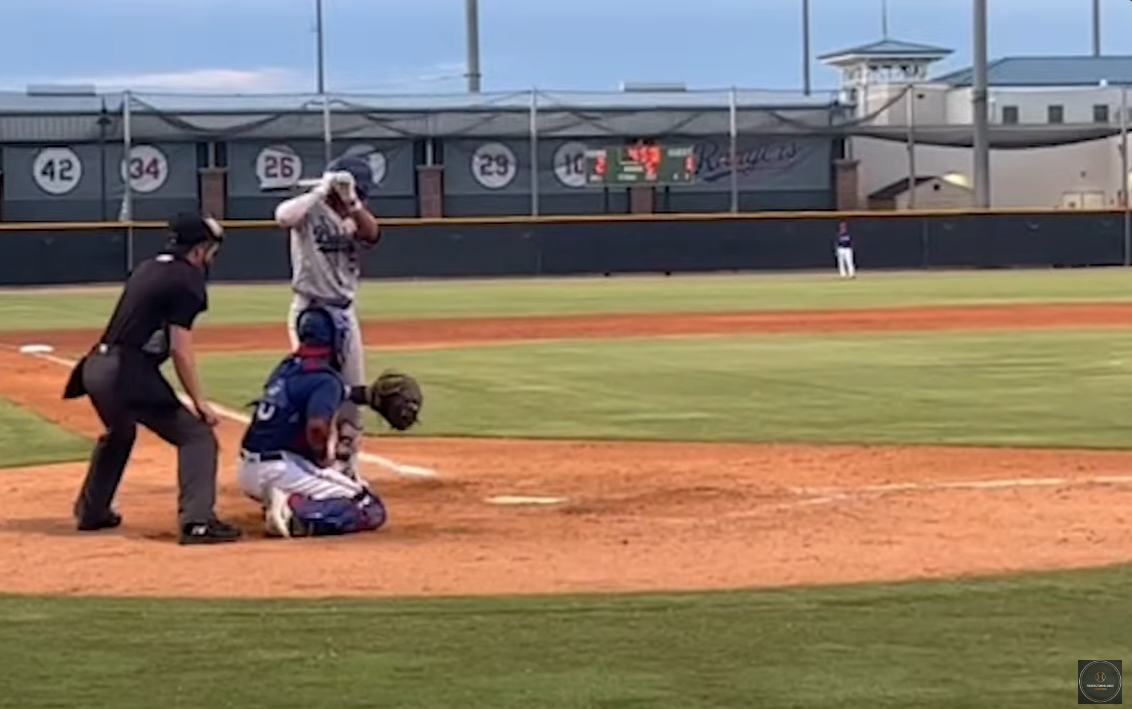
A fired former umpire is suing Major League Baseball, claiming he was sexually harassed by a female umpire and discriminated against because of his gender and his sexual orientation.
Brandon Cooper worked in the minor league Arizona Complex League last year, and according to the lawsuit he filed Wednesday in federal court in Manhattan, he identifies as bisexual.
“I wanted my umpiring and ability to speak for itself and not to be labeled as ‘Brandon Cooper the bisexual umpire,’” he told Outsports. “I didn’t want to be labeled as something. It has been a passion of mine to simply make it to the Major Leagues.”
But that didn’t happen. Instead of being promoted, he was fired. His suit names MLB and an affiliated entity, PDL Blue, Inc., and alleges he had endured a hostile work environment and wrongful termination and/or retaliation because of gender and sexual orientation under New York State and New York City law.
“Historically the MLB has had a homogenous roster of umpires working in both the minor and major leagues,” Cooper claims in his suit. “Specifically, to date there has never been a woman who has worked in a (regular) season game played in the majors, and most umpires are still Caucasian men. To try to fix its gender and racial diversity issue, defendants have implemented an illegal diversity quota requiring that women be promoted regardless of merit.”
Cooper claims former umpire Ed Rapuano, now an umpire evaluator, and Darren Spagnardi, an umpire development supervisor, told him in January 2023 that MLB had a hiring quota, requiring that at least two women be among 10 new hires.
According to the suit, Cooper was assigned to spring training last year and was notified by the senior manager of umpire administration, Dusty Dellinger, that even though he received a high rating in June from former big league umpire Jim Reynolds, now an umpire supervisor, that women and minority candidates had to be hired first.
Cooper claims that upon learning Cooper was bisexual, fellow umpire Gina Quartararo insulted him and fellow umpire Kevin Bruno by using homophobic slurs and crude remarks. At that time, Quartararo and Cooper worked on the same umpiring crew and being evaluated for possible promotion to the big leagues.
This season, Quartararo is working as an umpire in the Florida State League, one of nine women who are working as minor league umpires.
Cooper said he notified Dellinger, but instead of taking action against Quartararo, he said MLB ordered Cooper to undergo sensitivity training. According to his lawsuit, he was also accused of violating the minor league anti-discrimination and harassment policy.
Cooper’s suit says he met with MLB Senior Vice President of Diversity, Equity and Inclusion Billy Bean — who the Los Angeles Blade reported in December is battling cancer.
The lawsuit says at that meeting, Bean told the umpire that Quartararo claimed she was the victim, as the only female umpire in the ACL. Cooper said he told Bean Quartararo regularly used homophobic slurs and at one point physically shoved him. He also claims that he has video evidence, texts and emails to prove his claim.
But he said his complaints to Major League Baseball officials were ignored. His lawsuit said MLB passed him over for the playoffs and fired him in October. He said of the 26 umpires hired with Cooper, he was the only one let go.
Through a spokesperson, MLB declined to comment on pending litigation. Quartararo has also not publicly commented on the lawsuit.
Sports
Brittney Griner, wife expecting first child
WNBA star released from Russian gulag in December 2022
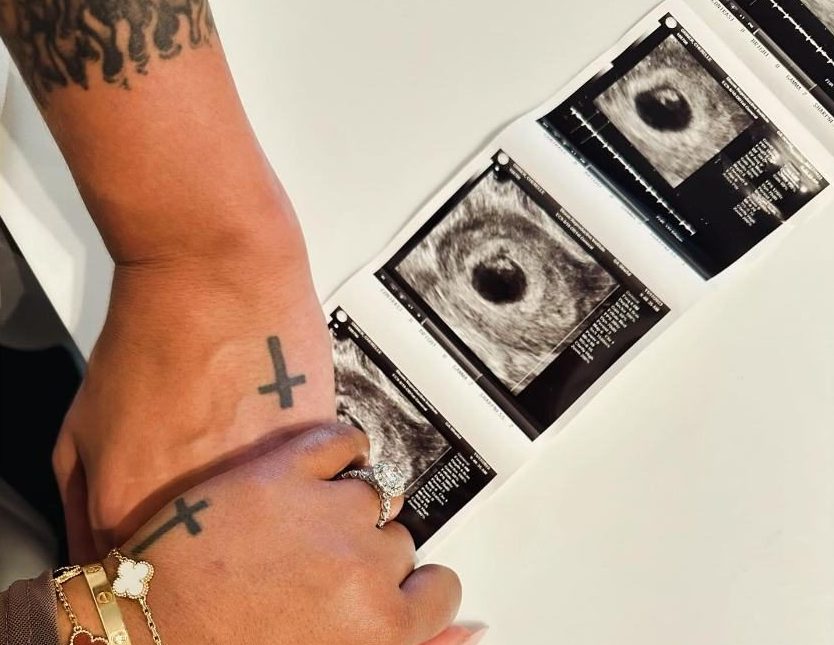
One year after returning to the WNBA after her release from a Russian gulag and declaring, “I’m never playing overseas again,” Phoenix Mercury star Brittney Griner and her wife announced they have something even bigger coming up this summer.
Cherelle, 31, and Brittney, 33, are expecting their first child in July. The couple shared the news with their 715,000 followers on Instagram.
“Can’t believe we’re less than three months away from meeting our favorite human being,” the caption read, with the hashtag, #BabyGrinerComingSoon and #July2024.
Griner returned to the U.S. in December 2022 in a prisoner swap, more than nine months after being arrested in Moscow for possession of vape cartridges containing prescription cannabis.
In April 2023, at her first news conference following her release, the two-time Olympic gold medalist made only one exception to her vow to never play overseas again: To return to the Summer Olympic Games, which will be played in Paris starting in July, the same month “Baby Griner” is due. “The only time I would want to would be to represent the USA,” she said last year.
Given that the unrestricted free agent is on the roster of both Team USA and her WNBA team, it’s not immediately clear where Griner will be when their first child arrives.
The Griners purchased their “forever home” in Phoenix just last year.
“Phoenix is home,” Griner said at the Mercury’s end-of-season media day, according to ESPN. “Me and my wife literally just got a place. This is it.”
As the Los Angeles Blade reported last December, Griner is working with Good Morning America anchor Robin Roberts — like Griner, a married lesbian — on an ESPN television documentary as well as a television series for ABC about her life story. Cherelle is executive producer of these projects.
Next month, Griner’s tell-all memoir of her Russian incarceration will be published by Penguin Random House. It’s titled “Coming Home” and the hardcover hits bookstores on May 7.
-
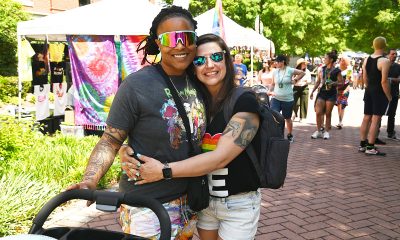
 a&e features4 days ago
a&e features4 days agoPride season has begun
-

 Federal Government5 days ago
Federal Government5 days ago4th Circuit rules gender identity is a protected characteristic
-
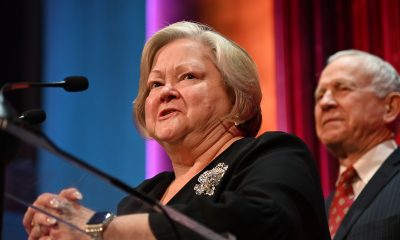
 The White House2 days ago
The White House2 days agoJudy Shepard to receive Presidential Medal of Freedom
-
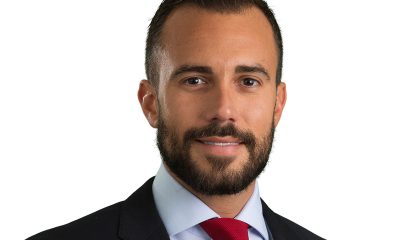
 World4 days ago
World4 days agoNew World Bank US executive director: LGBTQ rights are human rights

